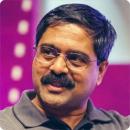Twin Cities Software Symposium
March 8 - 10, 2019
Speakers
Jessica Kerr
Lead Engineer at Atomist
Jessica Kerr is a developer of development systems. She works remotely from St. Louis, for Atomist, where she writes automations and automation infrastructure in TypeScript, Clojure, and whatever else is needed. She is a back-end developer who believes the front-end is most crucial. Jessica speaks at conferences in the US and Europe; find her on the >Code podcast (greaterthancode.com) and on Twitter and Medium as @jessitron.
Brian Sletten
Forward Leaning Software Engineer @ Bosatsu Consulting
Brian Sletten is a liberal arts-educated software engineer with a focus on forward-leaning technologies. His experience has spanned many industries including retail, banking, online games, defense, finance, hospitality and health care. He has a B.S. in Computer Science from the College of William and Mary and lives in Auburn, CA. He focuses on web architecture, resource-oriented computing, social networking, the Semantic Web, AI/ML, data science, 3D graphics, visualization, scalable systems, security consulting and other technologies of the late 20th and early 21st Centuries. He is also a rabid reader, devoted foodie and has excellent taste in music. If pressed, he might tell you about his International Pop Recording career.
Mark Richards
Independent Software Architect, Author of Fundamentals of Software Architecture
Mark Richards is an experienced, hands-on software architect involved in the architecture, design, and implementation of microservices architectures, service-oriented architectures, and distributed systems. He has been in the software industry since 1983 and has significant experience and expertise in application, integration, and enterprise architecture. Mark is the founder of DeveloperToArchitect.com, a website devoted to helping developers in the journey to software architect. He is the author of numerous technical books and videos, including the recently published Fundamentals of Software Architecture, Microservices AntiPatterns and Pitfalls, Microservices vs. SOA, the Software Architecture Fundamentals video series, The Enterprise Messaging video series, Java Message Service, 2nd Edition, and contributing author to 97 Things Every Software Architect Should Know. Mark has a master’s degree in computer science and is a regular conference speaker at the No Fluff Just Stuff (NFJS) Symposium Series. He has spoken at hundreds of conferences and user groups around the world on a variety of enterprise-related technical topics.
Venkat Subramaniam
Founder @ Agile Developer, Inc.
Dr. Venkat Subramaniam is an award-winning author, founder of Agile Developer, Inc., creator of agilelearner.com, and an instructional professor at the University of Houston.
He has trained and mentored thousands of software developers in the US, Canada, Europe, and Asia, and is a regularly-invited speaker at several international conferences. Venkat helps his clients effectively apply and succeed with sustainable agile practices on their software projects.
Venkat is a (co)author of multiple technical books, including the 2007 Jolt Productivity award winning book Practices of an Agile Developer. You can find a list of his books at agiledeveloper.com. You can reach him by email at venkats@agiledeveloper.com or on twitter at @venkat_s.
Daniel Hinojosa
Independent Consultant
Daniel is a programmer, consultant, instructor, speaker, and recent author. With over 20 years of experience, he does work for private, educational, and government institutions. He is also currently a speaker for No Fluff Just Stuff tour. Daniel loves JVM languages like Java, Groovy, and Scala; but also dabbles with non JVM languages like Haskell, Ruby, Python, LISP, C, C++. He is an avid Pomodoro Technique Practitioner and makes every attempt to learn a new programming language every year. For downtime, he enjoys reading, swimming, Legos, football, and barbecuing.
Craig Walls
Author of 'Spring in Action' and 'Spring AI in Action'
Craig Walls is a Principal Engineer, Java Champion, Alexa Champion, and the author of Spring AI in Action, Spring in Action, and Build Talking Apps. He's a zealous promoter of the Spring Framework, speaking frequently at local user groups and conferences and writing about Spring. When he's not slinging code, Craig is planning his next trip to Disney World or Disneyland and spending as much time as he can with his wife, two daughters, 1 bird and 2 dogs.
Kirk Knoernschild
Software Developer & Mentor
Kirk is software developer with a passion for building great software. He takes a keen interest in design, architecture, application development platforms, agile development, and the IT industry in general, especially as it relates to software development. His recent book, Java Application Architecture was published in 2012, and presents 18 patterns that help you design modular software.
Kenneth Kousen
President, Kousen IT, Inc.
Ken Kousen is a Java Champion, several time JavaOne Rock Star, and a Grails Rock Star. He is the author of the Pragmatic Library books “Mockito Made Clear” and “Help Your Boss Help You,” the O'Reilly books “Kotlin Cookbook”, “Modern Java Recipes”, and “Gradle Recipes for Android”, and the Manning book “Making Java Groovy”. He also has recorded over a dozen video courses for the O'Reilly Learning Platform, covering topics related to Android, Spring, Java, Groovy, Grails, and Gradle.
His academic background include BS degrees in Mechanical Engineering and Mathematics from M.I.T., an MA and Ph.D. in Aerospace Engineering from Princeton, and an MS in Computer Science from R.P.I. He is currently President of Kousen IT, Inc., based in Connecticut.
Raju Gandhi
Founder, DefMacro Software
Raju is a software craftsman with almost 20 years of hands-on experience scoping, architecting, designing, implementing full stack applications.
He provides a 360 view of the development cycle, is proficient in a variety of programming languages and paradigms, experienced with software development methodologies, as well an expert in infrastructure and tooling.
He has long been in the pursuit of hermeticism across the development stack by championing immutability during development (with languages like Clojure), deployment (leveraging tools like Docker and Kubernetes), and provisioning and configuration via code (toolkits like Ansible, Terraform, Packer, everything-as-code).
Raju is a published author, internationally known public speaker and trainer.
Raju can be found on Twitter as @looselytyped.
In his spare time, you will find Raju reading, playing with technology, or spending time with his wonderful (and significantly better) other half.
Michael Carducci
Holistic Software Architect
Michael Carducci is a seasoned IT professional with over 25 years of experience, an author, and an internationally recognized speaker, blending expertise in software architecture with the artistry of magic and mentalism. His recent book, “Mastering Software Architecture,” reflects his deep understanding of the multifaceted challenges of building resilient, effective software systems and high-performing teams. Michael's career spans roles from individual contributor to CTO, with a particular focus on strategic enterprise architecture and digital transformation.
As a magician and mentalist, Michael has captivated audiences in dozens of countries, applying the same creativity and problem-solving skills that define his technology career. He excels in transforming complex technical concepts into engaging narratives, making him a sought-after speaker, trainer, and emcee for internal and tech events worldwide.
In his consulting work, Michael adopts a holistic approach to software architecture, ensuring alignment with business strategy and operational realities. He empowers teams, bridges tactical and strategic objectives, and guides organizations through transformative changes, always aiming to create sustainable, adaptable solutions.
Michael's unique blend of technical acumen and performative talent makes him an unparalleled force in both the tech and entertainment industries, driven by a passion for continuous learning and a commitment to excellence.
Hans Dockter
Founder of Gradle
Hans Dockter is the founder of Gradle Inc., a company whose purpose is to empower software development teams to reach their full potential for joy, creativity, and productivity. To address his own personal frustrations as a developer, Hans co-founded the Gradle Build Tool project which was named by TechCrunch as one of the top 20 most popular OSS projects. Gradle Build Tool is now downloaded more than 23 million times a month. He then led the development of Gradle Enterprise which today is the leading enabling solution for the practice of Developer Productivity Engineering.
Previous to Gradle, Inc, Hans successfully led numerous large-scale enterprise builds and emerged as a thought leader in project automation. He is an advocate of Domain Driven Design, having taught classes and delivered presentations on this topic together with Eric Evans. Hans was also a committer for the JBoss project and founded the JBoss-IDE.
Andres Almiray
Developer Advocate for Gradle & Java Champion
Andres is a Java/Groovy developer and a Java Champion with more than 20 years of experience in software design and development. He has been involved in web and desktop application development since the early days of Java. Andres is a true believer in open source and has participated on popular projects like Groovy, Griffon, and DbUnit, as well as starting his own projects (Json-lib, EZMorph, GraphicsBuilder, JideBuilder). Founding member of the Griffon framework and Hackergarten community event. https://ch.linkedin.com/in/aalmiray
Jonathan Johnson
Software Architect
Jonathan Johnson is an independent software architect with a concentration on helping others unpack the riches in the cloud native and Kubernetes ecosystems.
For 30 years Jonathan has been designing useful software to move businesses forward. His career began creating laboratory instrument software and throughout the years, his focus has been moving with industry advances benefitting from Moore’s Law. He was enticed by the advent of object-oriented design and applied it to financial software. As banking moved to the internet, enterprise applications took off and Java exploded onto the scene. Since then, he has inhabited that ecosystem. After a few years, he returned to laboratory software and leveraged Java-based state machines and enterprise services to manage the terabytes of data flowing out of DNA sequencing instruments. As a hands-on architect, he applied the advantages of microservices, containers, and Kubernetes with a laboratory management platform.
Today he enjoys sharing his experience with peers. He provides perspective on ways to modernize application architectures while adhering to the fundamentals of modularity - high cohesion and low coupling.microservices, containers, and Kubernetes to their laboratory management platform.













